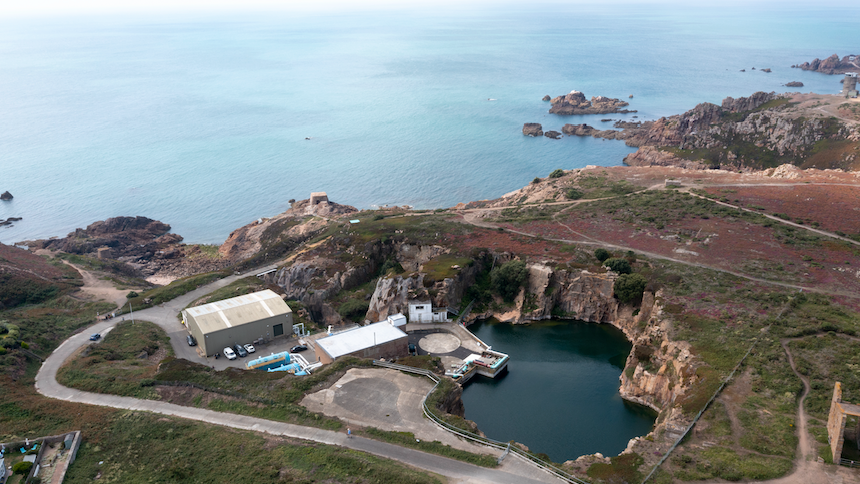Jersey Water bills set to increase from 2026
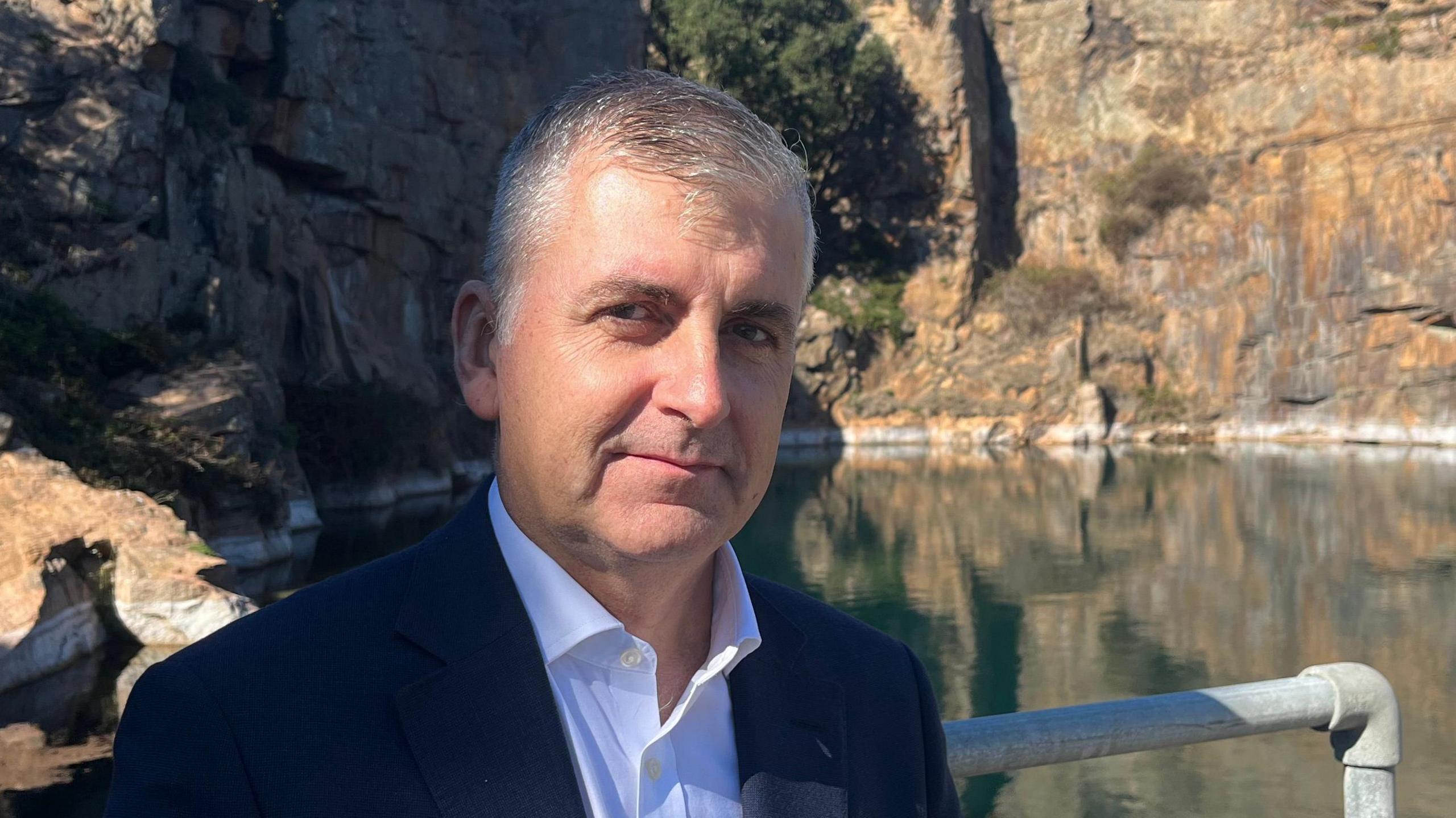
Helier Smith said islanders would see an average of £59 added to their water bills for 2026
- Published
Water bills in Jersey are expected to rise on average by just under £60 from 1 January, with more rises predicted for future years, the island's water firm has said.
Jersey Water said it was investing £48m over the next five years to "address future water shortages", with funding partially coming from increased water bills for customers.
It said its research suggested within the next 10 years the island could face "a potential water deficit of 8.6 million litres a day during severe drought" without intervention.
Jersey Water said islanders would see an average of £59.48 extra added to their bill per year from 1 January 2026 and a "further above-average increase" expected for 2027.
CEO Helier Smith said support would be given to those who needed it.
He said: "We're acutely aware that any increase in water charges is unwelcome, particularly for those households suffering the high cost of living.
"We've been very conscious when making that decision but we've had to balance that with the need for making significant investment in the island's water resilience now which is needed.
"There's no choice really and so it's a balance we've had to make."
Part of the £48m investment plans include increasing the capacity of the desalination plant by 50%, renewing sections of the mains network and reducing leakages.
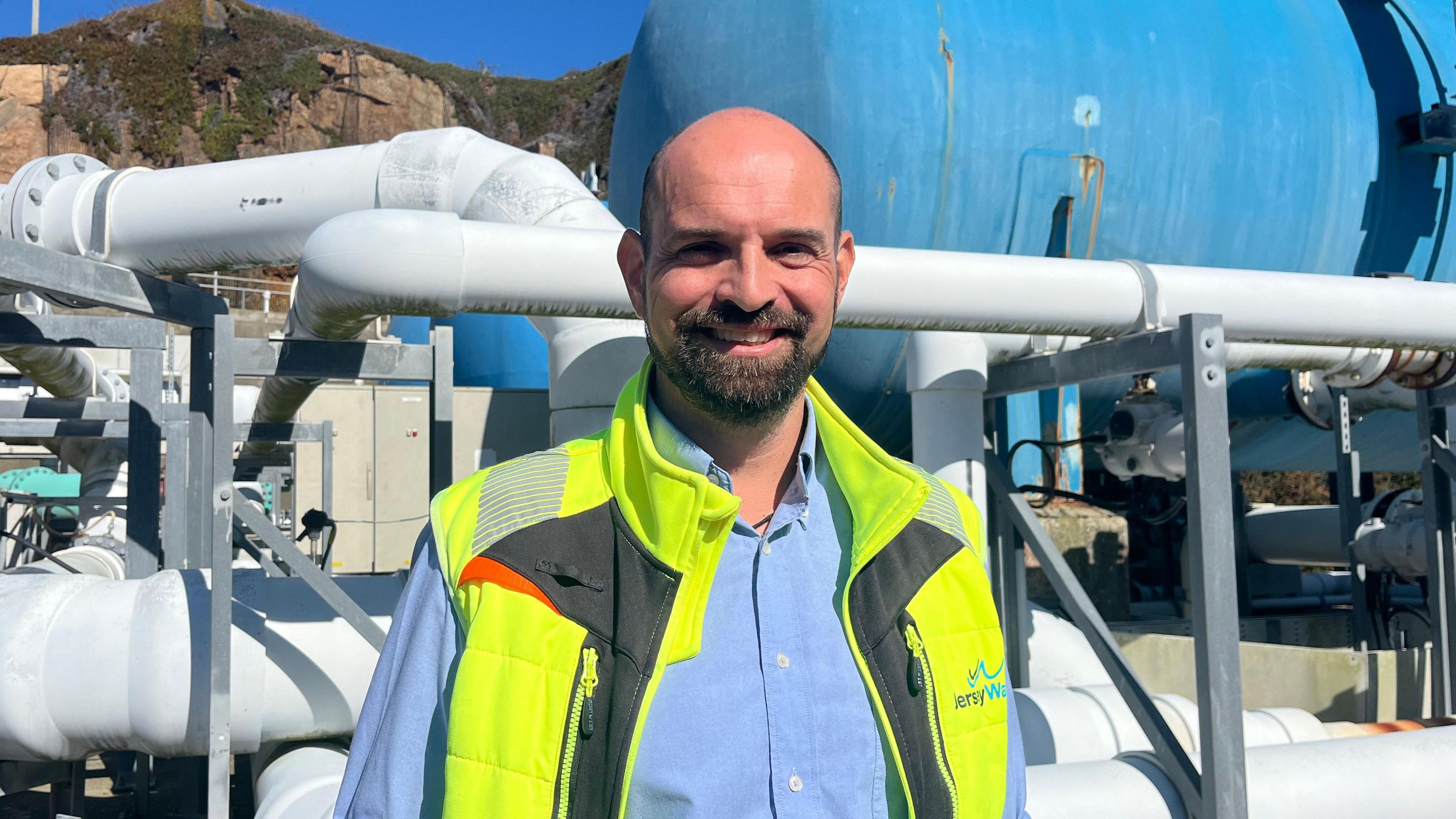
Mark Manton said improvements were needed at the desalination plant
Jersey Water said plans would also "adapt and future-proof" its operations when responding to new precautionary water quality regulations - with a focus on Perfluoroalkyl and Polyfluoroalkyl Substances (PFAS).
The toxic and long-lasting chemical are man-made and can be found in items such as waterproof clothing, non-stick pans, lipsticks or food packaging.
A new report in August recommended Jersey's government to set a new regulatory limit for the levels of PFAS in mains drinking water.
Jersey Water said about £2m had been allocated for the next two years for interim treatment and pilot trials for long-term treatment solutions.
It added that "major changes" to existing water treatments could be needed, including a potential new treatment facility.
In July, the desalination plant was used to bolster water supplies after reserves fell to lower than average for the time of year.
Mark Manton, chief water operations officer, said the plant had not been upgraded since 2015 and the improvements were needed.
He said: "If we think the reservoirs are depleting significantly, like we thought this summer, we were likely to be [at] very low levels by the end of the summer season, we take an operational decision to start the plant.
"So it's not run every day, it's only kicked into life in those dry months."
Follow BBC Jersey on X, external and Facebook, external. Send your story ideas to channel.islands@bbc.co.uk, external.
Related topics
- Published7 August
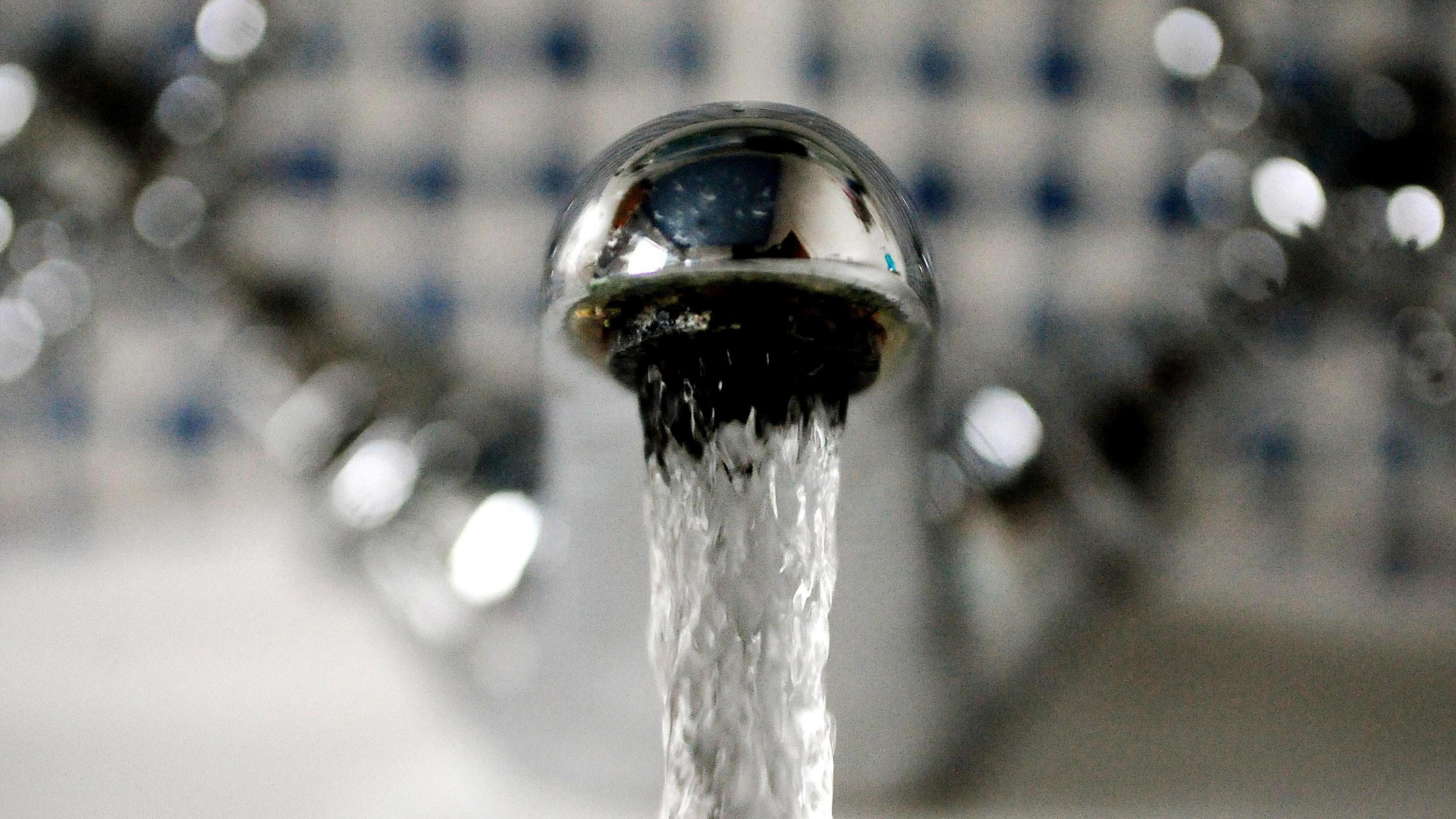
- Published8 August
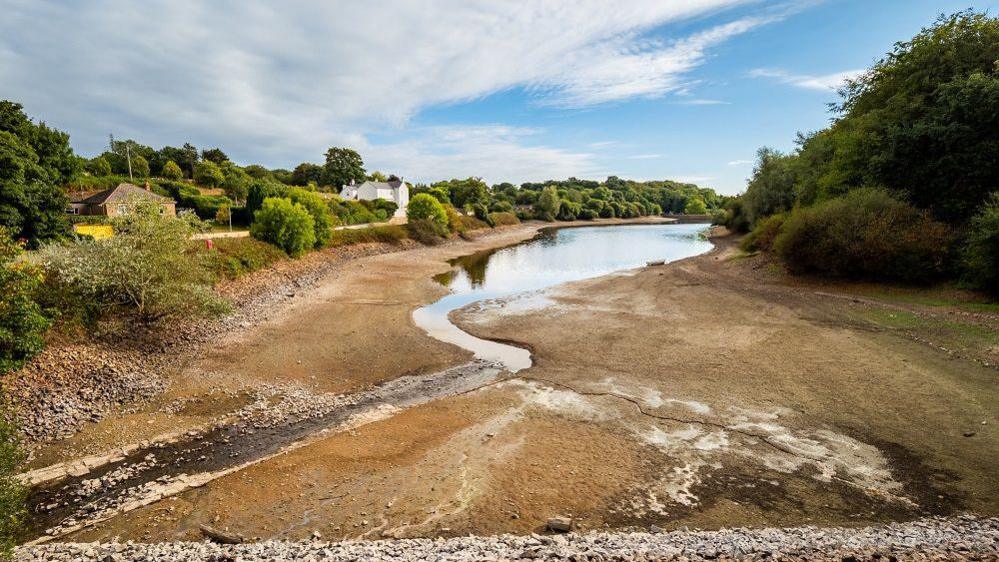
- Published23 July
